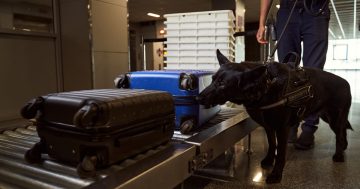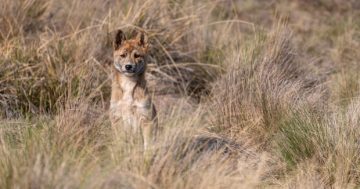 The Department of Agriculture and Water Resources’ (DAWR) biosecurity detector dogs are being sent to university to expand their pest sniffing detection skills.
The Department of Agriculture and Water Resources’ (DAWR) biosecurity detector dogs are being sent to university to expand their pest sniffing detection skills.
The Department is linking with the University of New England to train the dogs to seek out one of the nation’s most unwanted exotic pests — the Brown Marmorated Stink Bug (BMSB).
Head of Biosecurity at DAWR, Lyn O’Connell said the Department was working with the university to detect this serious pest in sea cargo.
“Detector dogs are a pivotal frontline defence against pests and diseases, intercepting around 60,000 biosecurity risk items at Australia’s international airports and mail centres in 2018,” Ms O’Connell said.
“We have strong measures in place offshore and at the border to manage the risk of this pest arriving here and we’ll soon have the best noses in the business on the job to enhance our efforts.”
She said a Brisbane trial involved the use of detector dogs for the screening of imported cars — a first for biosecurity in Australia.
“As BMSB (pictured) hitchhike in sea cargo, the introduction of the dogs is another way that we can detect and stop this pest in its tracks,” Ms O’Connell said.
“It is an example of how we can expand our existing detector dog capabilities to address current or emerging biosecurity risks.”
She said BMSB was a significant threat to Australia’s $12 billion horticulture industries because of the damage it can cause to vegetable crops, fruit and ornamental trees.




